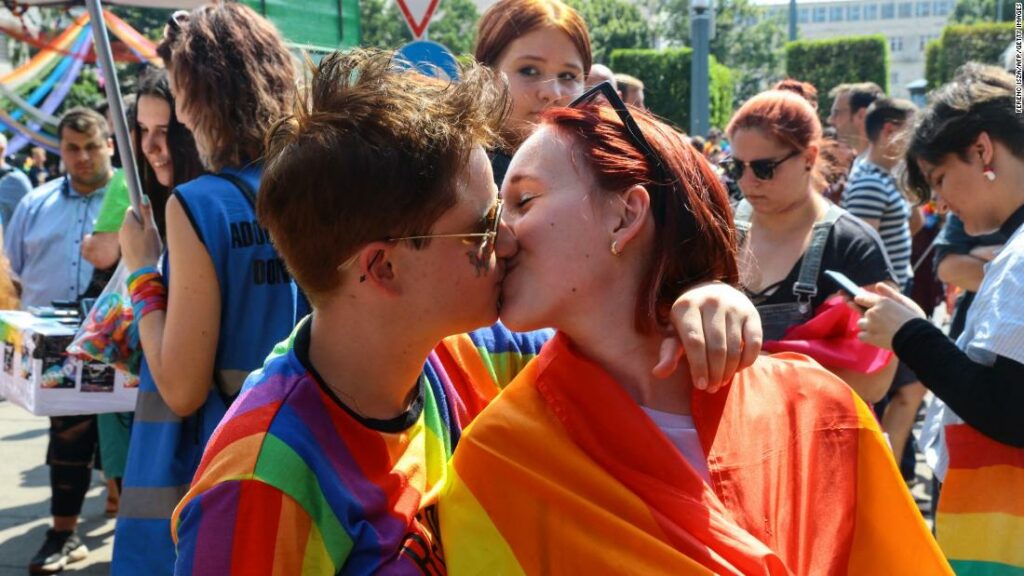Thousands join Pride event in Hungary as LGBTQ people face growing hostility

But this year, Pride is also a protest, as LGBTQ people and their allies rally against the country’s increasingly hostile policy towards their communities — punctuated by aOff the back of fierce international criticism, Yet some believe that years of state-sponsored homophobia is finally taking its toll.In the southern city of Szeged, partners Reka Spohn and Monika Rapi say that they and their two daughters have always felt accepted in their community. But the government’s latest move has changed all of that for them.”They (the government) are acting like we are a hazard for children, that we are dangerous to children,” Sphon said.”If they say it enough times, people will start to believe it,” she added.She notes the visibility of anti-LGBTQ billboards across the country. The government campaign, billed as a public consultation ahead of the referendum, asks leading questions, with emojis attached to them. In the capital, the propaganda is visible on almost on every street corner, with signs asking the questions: “Are you angry with Brussels?” and, “Are you worried that your child will face sexual propaganda?”The new law says that school sex education classes be taught only by groups registered by the government, with teachers prohibited from teaching books with LGBTQ characters or themes.It also prohibits the representation of LGBTQ people on television during daylight or early evening hours.While Orbán says that the law is not about violating LGBTQ rights, but about preserving parents’ rights to choose how to educate their children, Spohn says that the message is clear.”They act like we don’t exist,” she said.The couple are prepared to flee the country if things get worse — an idea that is being considered by many across Hungary’s LGBTQ communities.But others still feel the battle is worth fighting for at home.In November, Hubert Hlatky-Schlichter and his father, who is gay, launched a campaign to raise awareness about rainbow families — defined as a family with one parent who identifies as lesbian, gay, bisexual, trans, intersex or queer.”This is just the beginning, because we are everywhere,” Hlatky-Schlichter said.”Our existence is not propaganda. The very existence of rainbow families is not propaganda,” said Balazs Redli, a father. Redli, a journalist who’s worried about the future his son will face, says there’s space for everyone in Hungary.”We just want to live in this country like everyone one else does.”CNN’s Saskya Vandoorne and Melissa Bell reported from Budapest. Kara Fox reported and wrote from Ireland.


